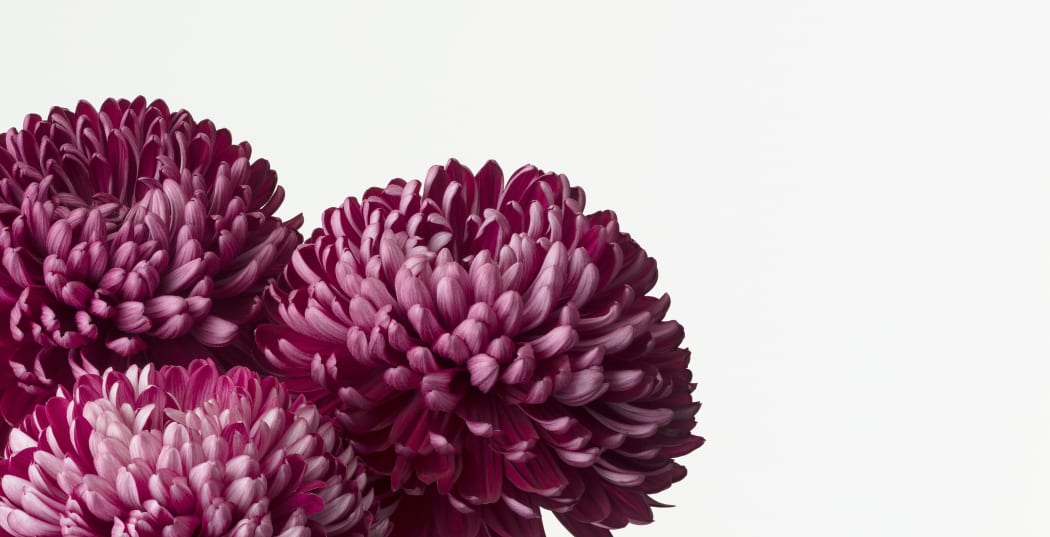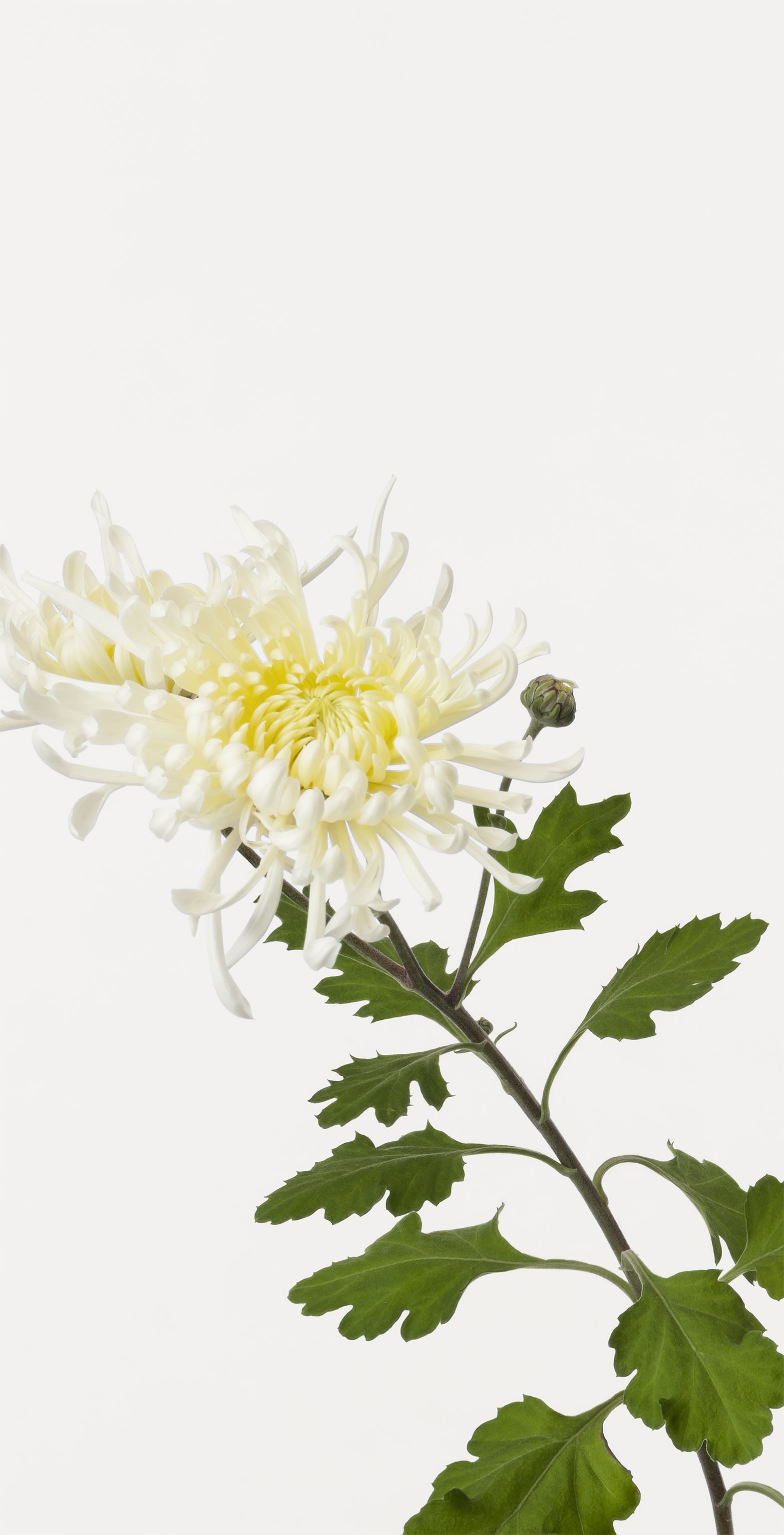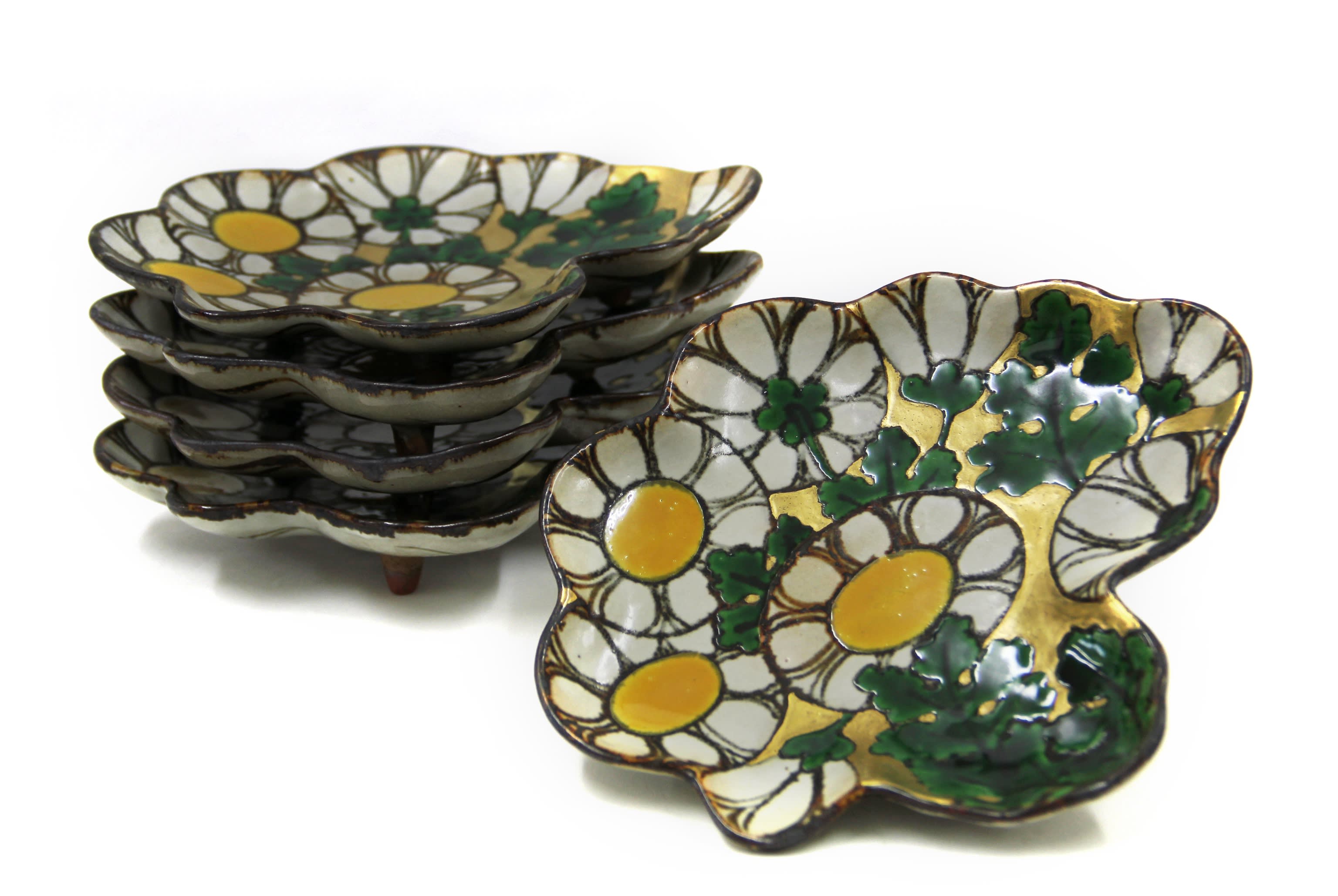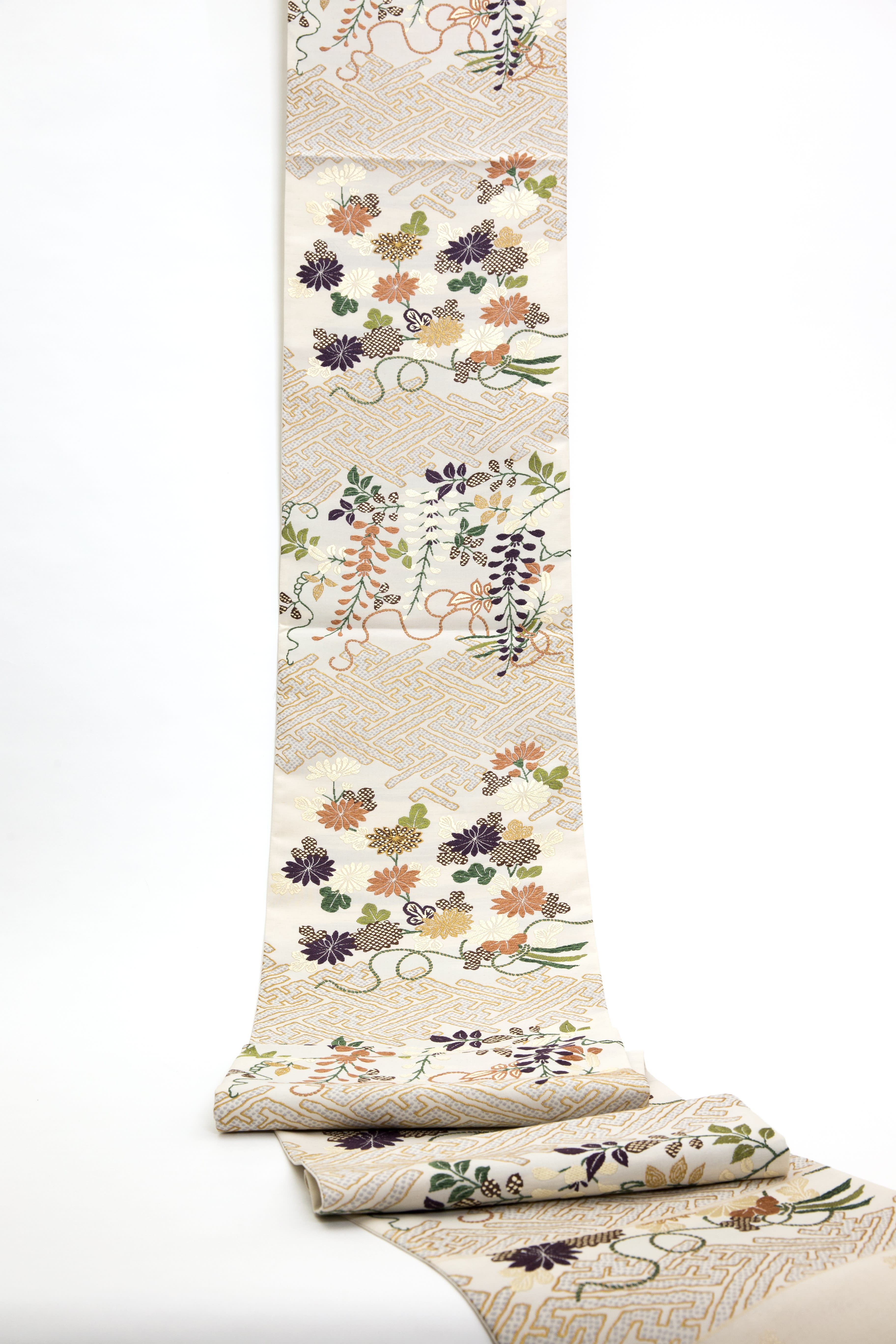
A deep tradition runs throughout East Asian cultures of ascribing certain numbers and dates with innately auspicious or inauspicious qualities. The balance of Yin (negative) and Yang (positive) is key to this calculus; odd numbers are associated with Yin, and even numbers with Yang. Weddings and other celebrations may be scheduled on dates that are deemed auspicious; when choosing a child’s name, parents might consider the number of strokes in the characters in order to incorporate a number with positive connotations.

Takashi Tomo-oka, Chrysanthemum
The Japanese holiday Chōyō no sekku, or the Double Ninth Festival, is observed on the ninth day of the ninth month. As the greatest single-digit, odd number, nine is believed to possess an excess amount of Yang; the “double nine” of Chōyō no sekku creates an atmosphere of imbalance. But through ritual and prayer, observers of the holiday transform the day’s “excess of Yang” (chōyō) into an auspicious occasion. Celebrated since the ninth century, Chōyō no sekku also signals the transition of the seasons and commemorates the autumn rice harvest and its accompanying bounty. Historically, Chōyō no sekku was observed according to the Chinese lunar calendar, and is now marked annually on September 9th.

Mukozuke dishes with chrysanthemums decorationby Shion Tabata
Chōyō no sekku is also known as the Chrysanthemum Festival, for the blossoming autumnal flower that represents youth and longevity in the face of the oncoming winter. The holiday is celebrated with displays of fresh-cut chrysanthemums and the arrangement of chrysanthemum-themed arts and crafts. Many women wear kimono with chrysanthemum designs as a sign of good fortune.

Obi sash with wisteria and chrysanthemums patterns by Kondaya Genbei
According to legend, the dew of a chrysanthemum has the power to impart immortality; during the Heian period (794–1185), aristocrats would wipe their faces with dew-soaked cloth to pray for long life. This tradition continues today: on the eve of Chōyō no sekku bundles of silk thread are placed on chrysanthemum flowers to absorb the flower’s dew and fragrance overnight. In the morning, celebrants might wet their faces with these bundles as a prayer for good health or use them as a fragrant decoration in their home. The day is further celebrated with Kikuzake, sake infused with chrysanthemum blossoms and served in elaborate lacquer or ceramic cups, along with prayers for good fortune through the fall and winter.
Contributed by Harrison Schley

